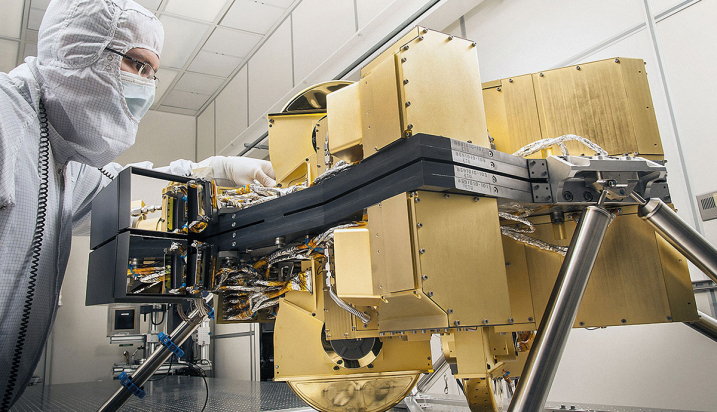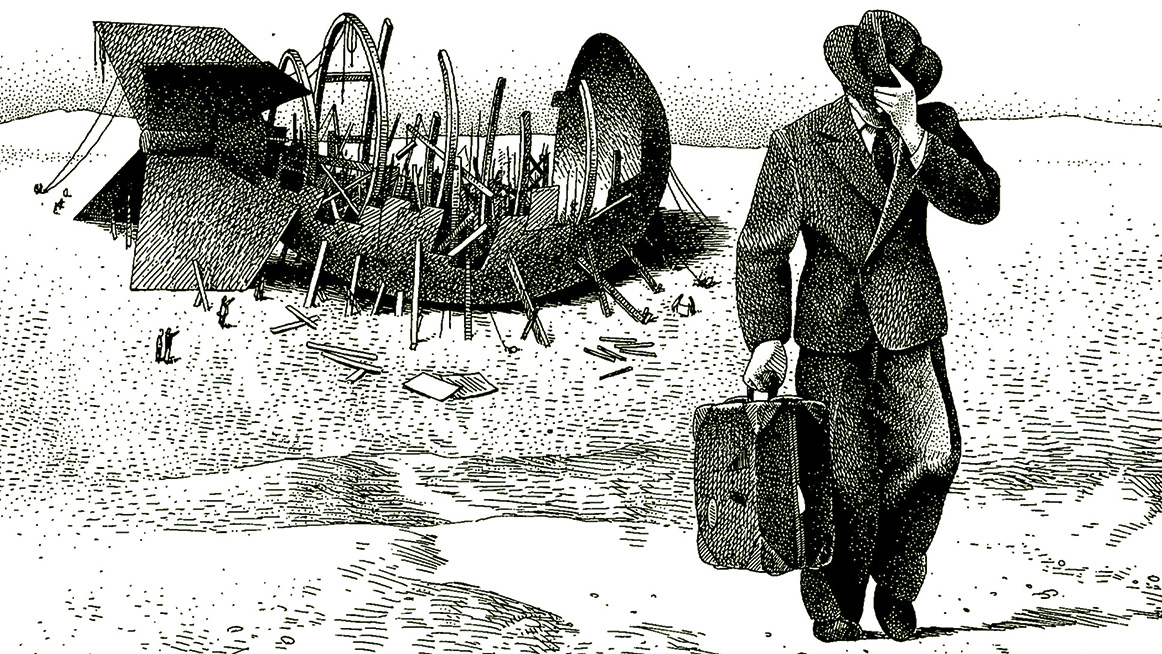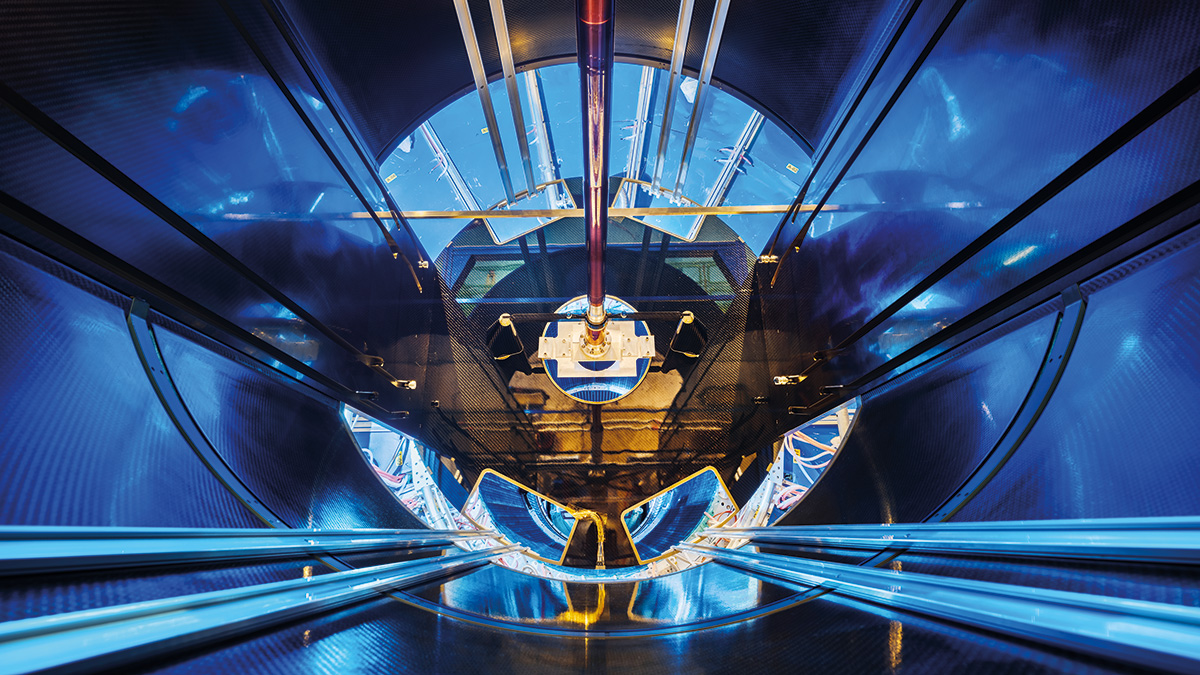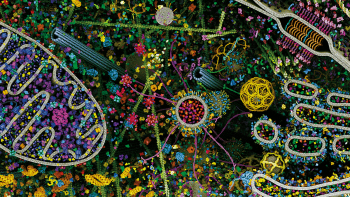 Read article 'The puzzle of an excess of bright early galaxies'
Read article 'The puzzle of an excess of bright early galaxies'
 Read article 'The puzzle of an excess of bright early galaxies'
Read article 'The puzzle of an excess of bright early galaxies'
 Read article 'The physicist who fought war and cancer'
Read article 'The physicist who fought war and cancer'
Subatomic physics has shaped both the conduct of war and the treatment of cancer. Joseph Rotblat, who left the Manhattan Project on moral grounds and later advanced radiotherapy, embodies this dual legacy.
 Read article 'Alchemy by pure light'
Read article 'Alchemy by pure light'
In lead collisions at the LHC, some of the strongest electromagnetic fields in the universe bombard the inside of the beam pipe with radioactive gold.
Angelica Facoetti explains five facts accelerator physicists need to know about radiobiology to work at the cutting edge of particle therapy.
Between 29 June and 9 July 2025, LHC physicists pushed the study of the quark–gluon plasma into new territory.
The Circular Electron–Positron Collider (CEPC), a 100-km electron–positron “Higgs factory” proposed in China, has reached the technical-design stage but will not be include...
PTCOG president Marco Durante describes an exciting future for the technology and shares his vision for closer international cooperation between medicine, academia and industry.
When Francesca Luoni logs on each morning at NASA’s Langley Research Center in Virginia, she’s thinking about something few of us ever consider: how to keep astronauts safe fro...
 Read about 'CERN Courier magazine: get the latest issue'
Read about 'CERN Courier magazine: get the latest issue'
Browse the editor’s picks by downloading a PDF of the most recent issue of CERN Courier
 Read about 'In focus: enabling technologies'
Read about 'In focus: enabling technologies'
The platform technologies that underpin Europe’s large-scale research facilities
 Read article 'A step towards the Higgs self-coupling'
Read article 'A step towards the Higgs self-coupling'
The ATLAS collaboration used Run 2 and Run 3 data to probe Higgs-boson pair production, setting new bounds on the Higgs self-coupling.
 Read article 'ALICE observes ρ–proton attraction'
Read article 'ALICE observes ρ–proton attraction'
The ALICE collaboration achieved the first direct measurement of the ρ⁰–proton interaction in high-multiplicity pp collisions.
 Read article 'The measurement problem, measured'
Read article 'The measurement problem, measured'
Nature surveyed asked over 1000 researchers about their views on the interpretation of quantum mechanics.
 Read article 'Neural networks boost B-tagging'
Read article 'Neural networks boost B-tagging'
The LHCb collaboration developed an inclusive deep-learning flavour tagger for neutral B-mesons, improving tagging power by up to 35%.
 Read article 'Machine learning and the search for the unknown'
Read article 'Machine learning and the search for the unknown'
The CMS collaboration is employing neural networks to conduct model-independent searches for short-lived particles that could escape conventional analyses.
 Read article 'Standardising sustainability: step one'
Read article 'Standardising sustainability: step one'
The Laboratory Directors Group has published guidance on evaluating the carbon impact of accelerator projects.
 Read article 'NuFact prepares for a precision era'
Read article 'NuFact prepares for a precision era'
More than 200 physicists gathered in Liverpool from 1 to 6 September 2025 for the 26th International Workshop on Neutrinos from Accelerators.
 Read article 'Mainz muses on future of kaon physics'
Read article 'Mainz muses on future of kaon physics'
KAONS 2025 brought nearly 100 physicists to Mainz from 8 to 12 September 2025, to discuss the latest results in kaon physics.
 Read article 'ICFA meets in Madison'
Read article 'ICFA meets in Madison'
The 99th meeting of the International Committee for Future Accelerators took place on 24 August 2025, in Madison.
 Read article 'Invisibles, in sight'
Read article 'Invisibles, in sight'
Around 150 researchers gathered at CERN from 1 to 5 September 2025, for the annual meeting of the Invisibles network.
 Read article 'Higgs hunters revel in Run 3 data'
Read article 'Higgs hunters revel in Run 3 data'
About 100 researchers gathered in Orsay and Paris from 15 to 17 July 2025, for the 15th Higgs Hunting workshop.
 Read article 'All aboard the scalar adventure'
Read article 'All aboard the scalar adventure'
The first Workshop on the Impact of Higgs Studies on New Theories of Fundamental Interactions took place on the Island of Capri, Italy, from 6 to 10 October 2025.